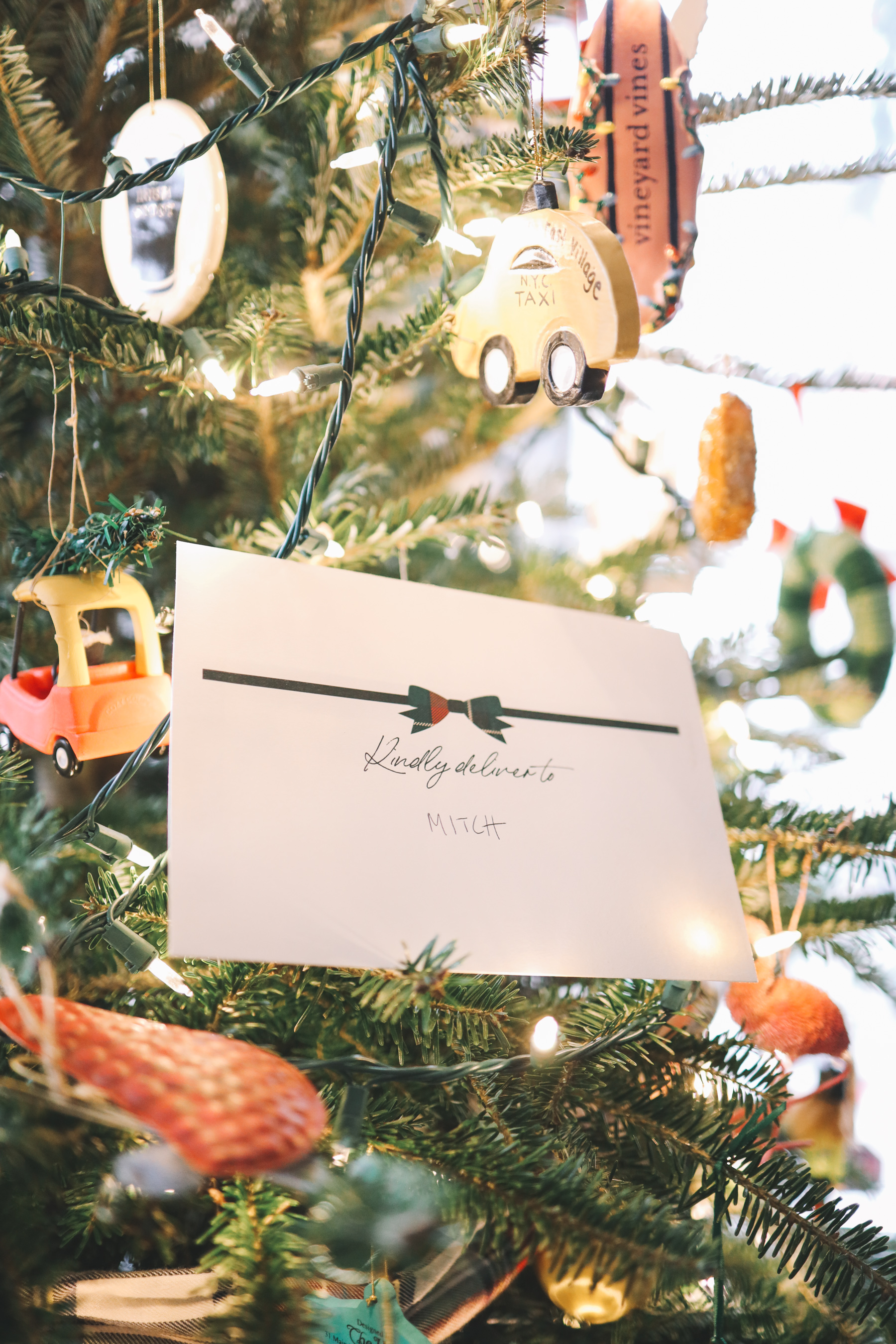Mitch here!
New Year’s resolutions are especially tough this year. And after being shut inside for nine months, I’m sick of introspection. I also feel that I’ve already done enough self improvement for one year. I’m fasting every day, I exercise regularly, I’m reading, and I even eat salad!
So I’m skipping the resolutions this year. I’m good. Instead, I’m going to write my future self a letter—because I’m ready to look outward again.
Writing a letter helpful for me today, instructive for me over the course of the year, and also enjoyable to read on “opening day.” It’s literally a gift that keeps on giving!
I’ll admit that writing it was more difficult than I thought it would be. There was just something so strange about speaking honestly to myself this way. My future self is the one person who is totally immune to my BS, and as a result, sitting down to write one of these future letters usually gives me intense writer’s block.
But I did it, and today I’m offering up a guide for anyone else who’d like to engage in future self letter writing. Best of luck!
How to write a letter to yourself
1. Set a meaningful delivery date
This could be a birthday, an anniversary or an upcoming milestone. I tend to think that New Year’s 2021 is too far out, but regardless, setting a firm, deliberate date frames the letter and offers an easy entry point.
2. Be casual and be yourself
When writing letters in general, I find that I get somewhat stressed about how I sound. But with a letter to myself, I am the only reader! So I try to be as casual and honest with myself as possible. Long and rambling paragraphs filled with honesty are so much more meaningful than a carefully edited paragraphs, if that makes sense.
3. Describe who you are now
A good jumping off point into the letter is to describe yourself. Use the sentence starter “I am…” five times, and write down what first comes to mind. Getting into specifics early gets the ball rolling!
4. Discuss people and activities you LOVE
The best part of a time capsule can often be the pop culture references. Reading about my favorite music, movies, books, food and experiences instantly transports me back and gives me a sense of time. And, of course, I get to write about my family and friends here, which is undoubtedly the best part of my life. This section is arguably the most important, as it’s the core of my happiness. It serves as a reminder to my future self to make time for the people and activities I love!
5. Reveal current anxieties, stressors and worries
This is the easiest part of the letter for me. My mind is often filled with worries—whose isn’t?!—and it’s a little startling to realize how quickly they come to me when I sit down to do this. But hey: That’s why this section is important, too. Writing down my anxieties and sending them off into the future is a therapeutic exercise. When reading about my past self’s insurmountable worries they always seem super surmountable. And that’s some invaluable retrospect.
6. Describe current passions and beliefs
In contrast, this is the hardest part of the letter for me. It’s one of the few scenarios where writing about things I believe in without needing to convince anyone that I’m right. Writing in this way immediately calls my beliefs into question and I get pretty self conscious that my future self might disagree with me. But the show must go on! This is a healthy exercise and a worthwhile one, too. Always good to question!
7. What are you good at?
This can make me feel uneasy; we’re taught to be humble. But keep in mind that you’re the only person reading this, and it’s good to acknowledge your strengths, especially if you’re the kind of person who often feels that they could be doing better. Sometimes it’s easy to forget how much growth I’ve experienced over the course of a year, and instead focus on missteps. When I read my letter, though, I’m proud of myself. And that’s a good thing!
8. Discuss current goals and ask for progress updates
Being honest about current goals is a meaningful life exercise anytime, but it’s especially powerful to hold your future self accountable in this letter. Asking for progress updates brings a certain reality to goals and forces me to be honest about the achievability of each one. It also gets me refocused on them!
9. Be honest about bad and good habits
The older I get, the more I realize that my life is governed by my habits. Removing bad habits and establishing good ones is much more challenging than expected, but writing about them and sending the discussion off to the future really brings things into perspective for me.
10. Ask yourself questions
The last two items on the list are different from the first eight. Up until now, this guide has focused on topics that benefit the writer as well as the reader, but asking your future self questions is much more fun for the future reader—in my experience, at least. A few big ones that have helped me in the past are:
- How do you honestly feel about work and your job?
- If I could give you tomorrow off, how would you use it?
- What do you do to relax?
- What is your relationship with your spouse, parents, children like?
- If you could change one thing about your life, what would it be?
11. Provide advice
If I can’t take advice from myself, who can I take advice from?!
Sending the letter
There are a few great websites that make this process easy if you’re open to writing the letter as an email. I personally love how easy FutureMe.org makes the project. They even allow you to make your letter public if that’s your thing. (Though I would probably recommend against that, as it would likely impact the activity’s effectiveness and also that sounds downright scary. 😉) Services like Memories.net even allow you to send audio messages along with the letter.
If you’re a paper letter writer like my wife is, I recommend being as official with it as possible. Seal the letter in an envelop, address it to yourself and write a “Do Not Open Until this Date” message across the seal. Hide the letter in a private space that’s easy to remember and set an alert on your calendar to remind yourself to open it.
Okay. It’s probably time to stop blabbering on the blog and to go write my letter.
Mitch—and 2020, thank god—OUT!














